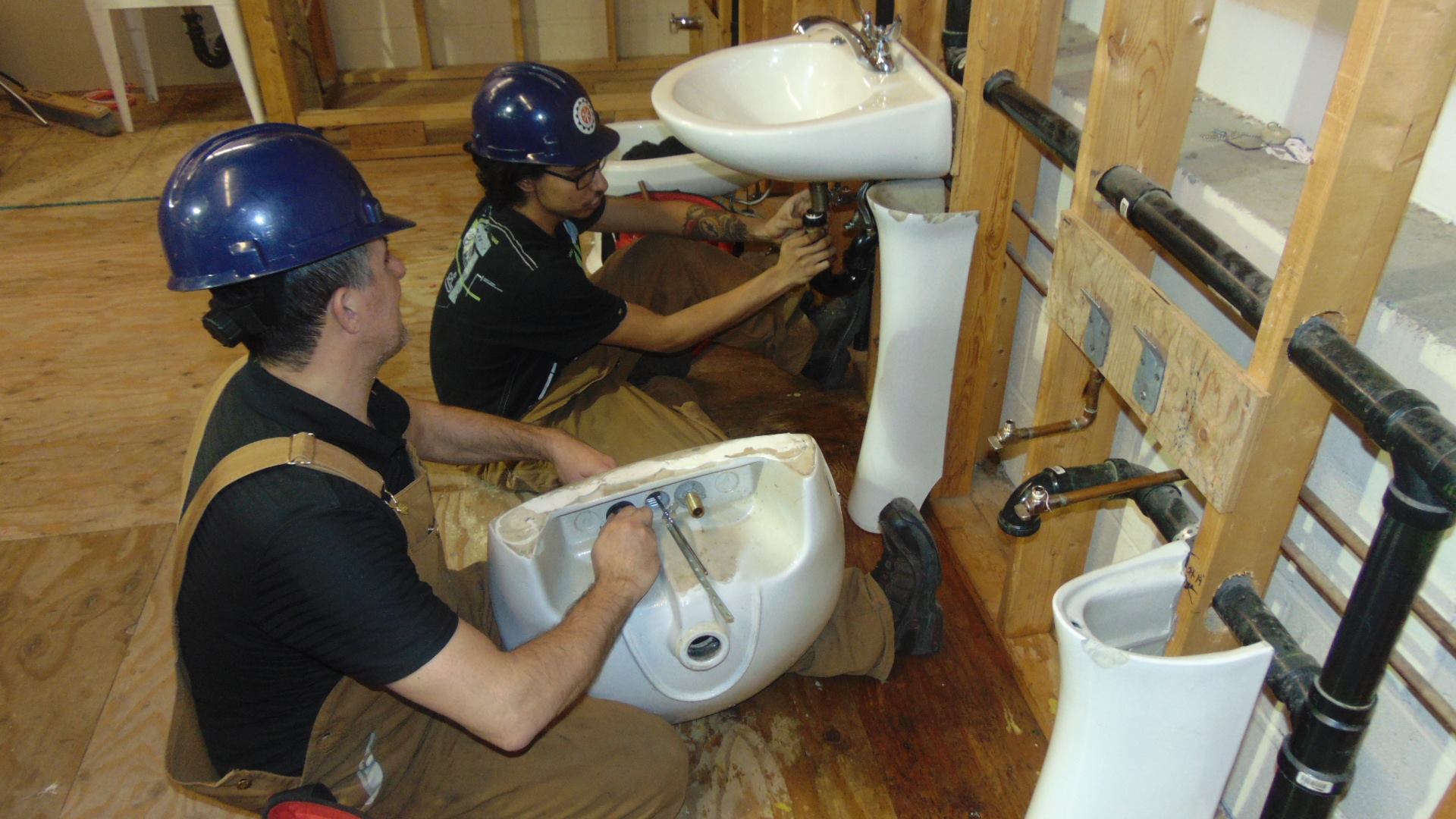The Progression of Plumbing: A Concise History

Pipe systems is a crucial part of our modern lives, often taken for granted until a problem arises. From the ancient aqueducts of Rome to today's advanced plumbing technologies, the evolution of plumbing has greatly influenced our daily routines and well-being. Grasping the background of plumbing illuminates the incredible advancements we have witnessed in this field and emphasizes the importance of expert plumbers in maintaining our homes.
As we embark on this fascinating journey, it is crucial to appreciate the typical plumbing problems that many homeowners face today, along with realistic solutions and preventive measures. Whether it's dealing with a burst pipe or insufficient water pressure, knowing when to tackle these issues on your own or contact a professional can make all the difference. Come along as https://werner-brennan.blogbright.net/five-piping-tools-every-diyer-should-own examine the history and changes of plumbing, while also providing valuable insights into maintaining your personal plumbing system for peak performance and peace of mind.
Frequent Water Problems and Solutions

One of the most frequent plumbing challenges homeowners face is a obstructed pipe. This problem can stem from a buildup of food waste, hair, soap residue, and other materials. To fix a blocked drain, you can start by using a plunger or a pipe snake to dislodge the blockage. If these methods do not work, a mixture of baking soda and vinegar can be added down the pipe, followed by boiling water to help dissolve the clog. Regular upkeep, such as using sink strainers and preventing unsuitable items down the drain, can prevent blockages from occurring.
Another common issue is reduced water flow, often caused by scale in pipes or drips in the plumbing system. To diagnose low water pressure, check various taps to see if it's a single issue, then check the master shutoff valve to ensure it is entirely open. If deposits is the cause, you may need to remove debris from the aerators on sinks and shower heads. In some cases, a professional plumber may be required to address issues or replace damaged pipes to return normal water pressure.
In conclusion, cracked pipes are a severe plumbing emergency that can cause major damage to your home. The initial step when facing a burst pipe is to locate and turn off your water supply immediately to stop water damage. Then, you should contact a licensed plumber to assess the damage and make necessary repairs. Preventative measures include properly insulating pipes during frigid months and conducting regular checks to identify any signs of wear or breaks to reduce the chances of broken pipes.
Preventative Pipe Care
Ongoing preventative maintenance is crucial for any property owner looking to avoid frequent plumbing problems. Consistent inspections can help spot potential issues before they worsen into expensive repairs. Property owners should get accustomed themselves with clues indicating a plumbing problem, such as unexpected water bills or reduced water pressure. By taking proactive steps, such as inspecting for leaks or blockages periodically, you can save time and money in the long run.
One more key aspect of preventative maintenance is the seasonal readiness of your plumbing network. For instance, in the winter months, homeowners should insulate pipes to prevent frost and bursting. In the spring and fall, it's advisable to conduct comprehensive plumbing inspections, as this is a prime time for issues like blocked drains and unnoticed leaks to appear. By staying ahead of seasonal changes, you can maintain the lifespan of your plumbing system.
Lastly, it is prudent to seek out professional plumbing help for consistent maintenance checks. Using a licensed plumber can provide reassurance, as they possess the skills and equipment necessary to handle complex plumbing problems. This can be especially beneficial during urgent situations when every minute is of the essence. By creating a partnership with a reliable plumbing service, homeowners can ensure that their requirements are met efficiently and satisfactorily.
Crisis Pipe Tips and Advice
During moments of plumbing emergencies, the first step is to stay composed and assess the circumstances. If you notice any signs of a burst pipe or severe leak, locate your main water shut-off valve and turn it off right away to avoid further water damage. Keeping a wrench or tool near the shut-off valve can save you critical time when an emergency arises. Understanding how to shut off your water in an emergency is crucial for every homeowner, as it can help mitigate the impact of flooding in your home and allow you to take further action more effectively.
After the water is shut off, it's vital to pinpoint the source of the problem. For minor leaks or clogs, keep tools and materials on hand for quick fixes, such as pipe tape, a plunger, or a drain snake. If the issue involves a more complex problem, like a sewer backup or severe pipe damage, it is wise to call a professional plumber. Keeping a reliable plumbing service in mind is helpful, as they can respond quickly and handle emergencies when time really matters.
Lastly, after addressing the immediate concern, implement steps to prevent future issues. Regular inspections and maintenance can go a long way in avoiding plumbing disasters. A yearly plumbing checklist helps to ensure that your pipes and fixtures are in good condition. Look for signs you may have a hidden leak or areas that might need some extra attention, especially leading up to winter, when cold weather can lead to frozen pipes. Making emergency repairs quickly and efficiently not only resolves the immediate problem but also shields your home from potential long-term damage.
